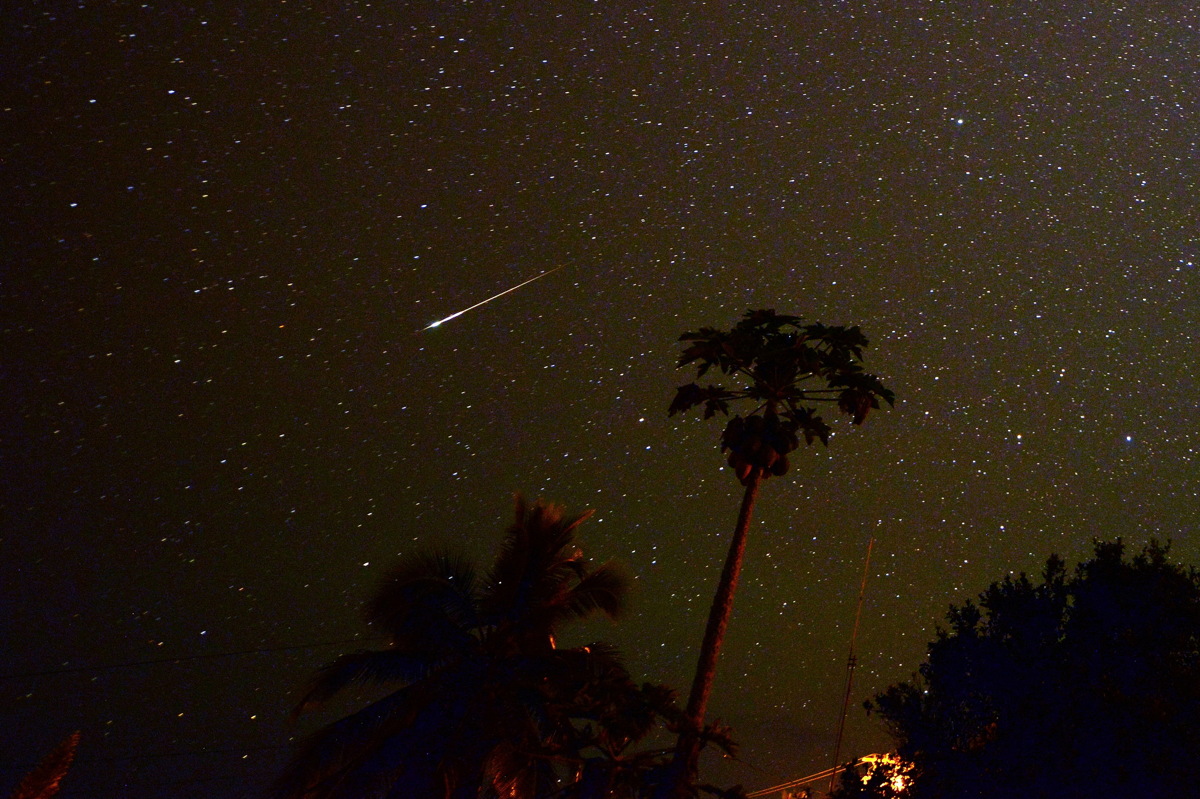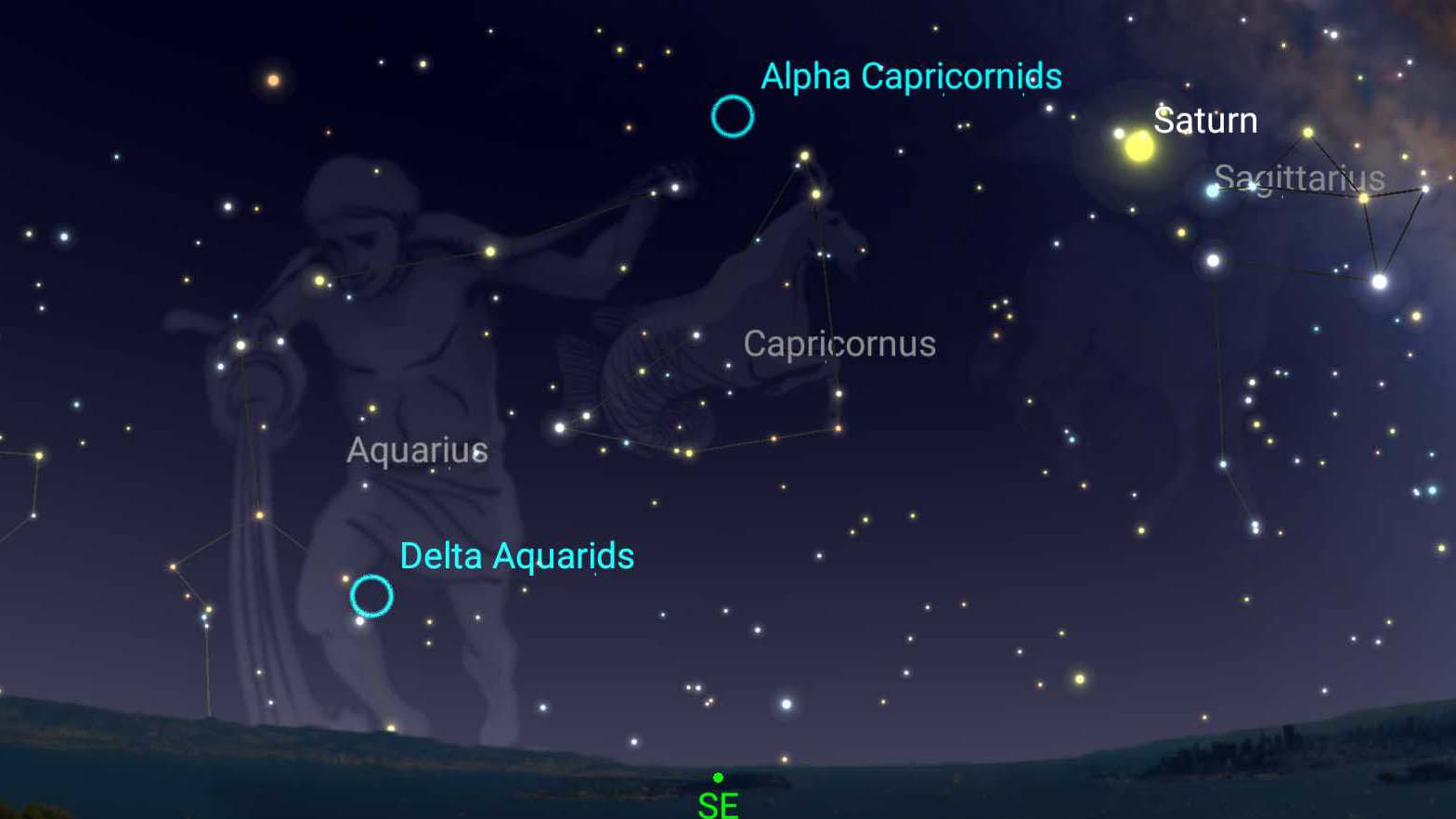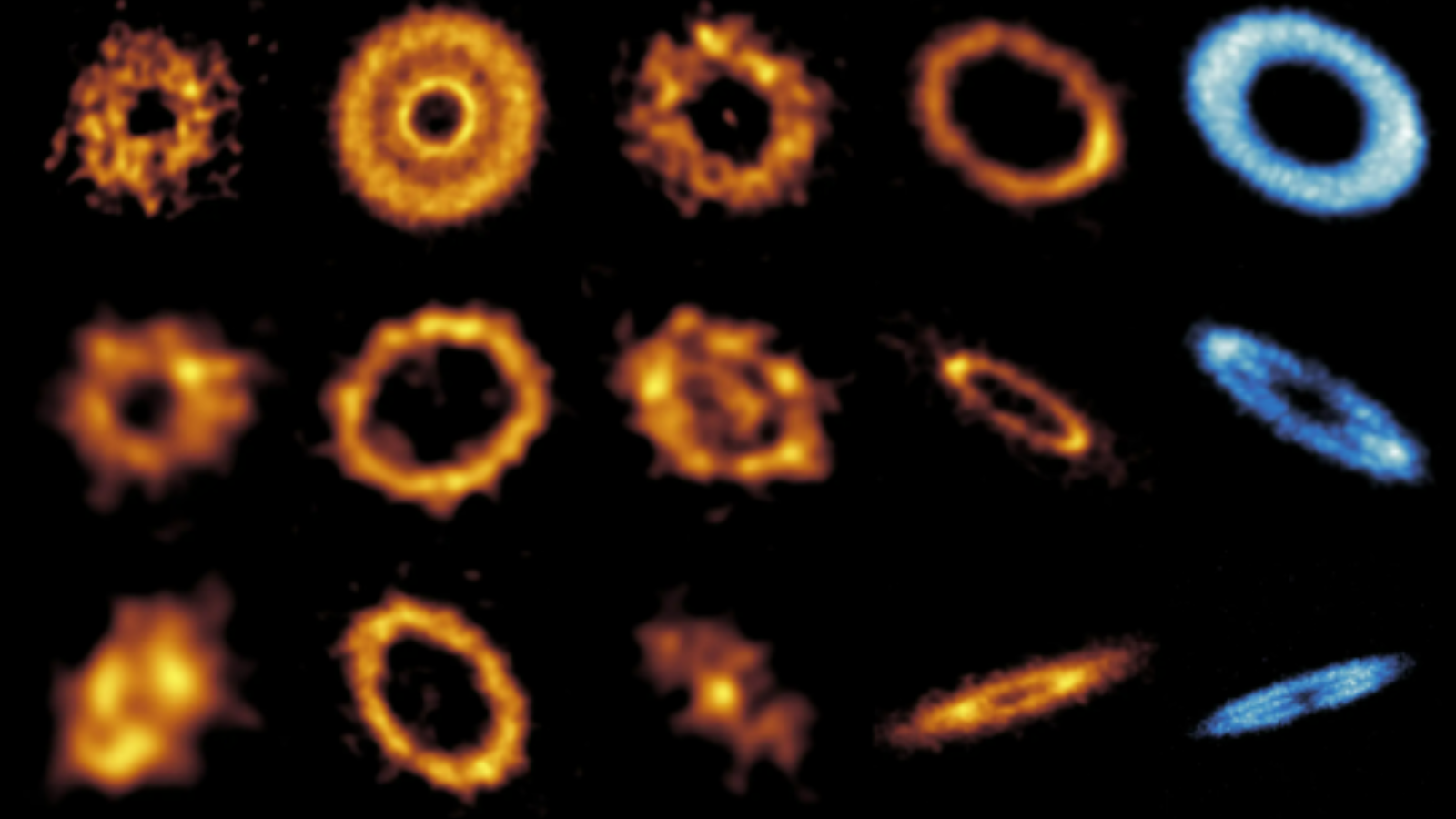Look Up! Dazzling Double Meteor Shower Peaks Tonight

Look up! Tonight (July 29), into early Tuesday (July 30) morning, skywatchers will be able to view a dazzling double meteor shower, according to the American Meteor Society (AMS).
The Southern Delta Aquariids and the Alpha Capricornids will speckle the night sky tonight, combining to 20-25 visible meteors per hour, Accuweather reports. This will be the first visible meteor shower since the Eta Aquarids peaked in May.
Skywatchers can expect the Southern Delta Aquariids, which will be most visible in the Southern Hemisphere, to be mostly faint meteors - mostly lacking trailing trains and fireballs, the AMS reports. The Southern Delta Aquariids get their name from Delta, the third-brightest star in the Aquarius constellation. Since they are visible in the southern sky, skywatchers will want to make sure the southern horizon is not obstructed.
Related: The Summer Meteor Showers of 2019 Explained
The Alpha Capricornids are not a very strong shower, however it is expected to produce a relatively high percentage of fireballs and will be equally visible on both sides of the equator, according to the AMS.
The Southern Delta Aquarids will be traveling at a moderate velocity, about 93,600 mph (150,635 km/h), much faster than the slow Alpha Capricornids traveling at 54,000 mph (86,905 km/h, the AMS reports.
The concurrent meteor showers will be most visible just after midnight in the eastern U.S. where it is predicted to be mostly cloud-free. Rain and cloud coverage will likely obscure the skies for skywatchers in the central and western U.S. Tonight, the waning crescent moon will only be 6% full. The next full moon will be on August 15, just after the Perseids meteor shower peaks.
Breaking space news, the latest updates on rocket launches, skywatching events and more!
Related: How to See the Best Meteor Showers of 2019
If you miss the meteor showers peaking tonight, you may still be able to catch them through the first few nights of August. The Southern Delta Aquariids will remain active until August 23 and the Alpha Capricornids will remain active until August 15.
There are a few ways to improve your chances of viewing a spectacular meteor shower.
According to Earthsky.org, if you watch for showers in the hours before dawn, distance yourself from bright light pollution if you live in or near a city and let your eyes adjust to the dark (it can take up to 45 minutes to adjust), you can maximize your meteor shower-watching experience.
- Perseids: Bright Meteor Shower in August
- How Meteor Showers Work (Infographic)
- Lyrid Meteor Shower 2019 Peaks Overnight Tonight and Monday!
Follow Chelsea Gohd on Twitter @chelsea_gohd. Follow us on Twitter @Spacedotcom and on Facebook.

Chelsea “Foxanne” Gohd joined Space.com in 2018 and is now a Senior Writer, writing about everything from climate change to planetary science and human spaceflight in both articles and on-camera in videos. With a degree in Public Health and biological sciences, Chelsea has written and worked for institutions including the American Museum of Natural History, Scientific American, Discover Magazine Blog, Astronomy Magazine and Live Science. When not writing, editing or filming something space-y, Chelsea "Foxanne" Gohd is writing music and performing as Foxanne, even launching a song to space in 2021 with Inspiration4. You can follow her on Twitter @chelsea_gohd and @foxannemusic.

